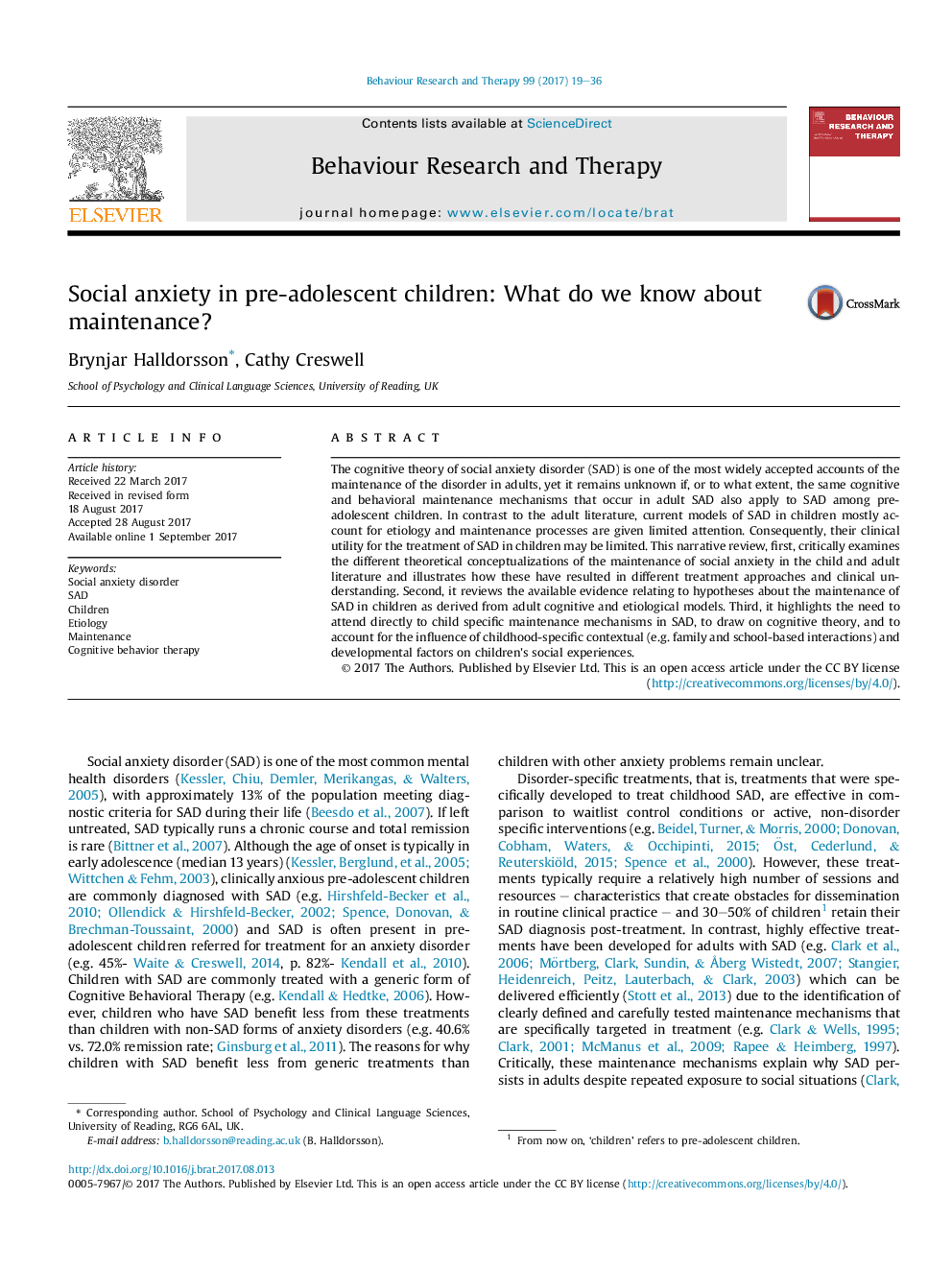| Article ID | Journal | Published Year | Pages | File Type |
|---|---|---|---|---|
| 5038108 | Behaviour Research and Therapy | 2017 | 18 Pages |
â¢We review possible maintenance mechanisms in childhood social anxiety.â¢No cognitive maintenance model for childhood social anxiety currently exists.â¢It is unclear what mechanisms keep social anxiety going in children once developed.â¢A child specific maintenance model may improve treatment outcomes and efficiency.
The cognitive theory of social anxiety disorder (SAD) is one of the most widely accepted accounts of the maintenance of the disorder in adults, yet it remains unknown if, or to what extent, the same cognitive and behavioral maintenance mechanisms that occur in adult SAD also apply to SAD among pre-adolescent children. In contrast to the adult literature, current models of SAD in children mostly account for etiology and maintenance processes are given limited attention. Consequently, their clinical utility for the treatment of SAD in children may be limited. This narrative review, first, critically examines the different theoretical conceptualizations of the maintenance of social anxiety in the child and adult literature and illustrates how these have resulted in different treatment approaches and clinical understanding. Second, it reviews the available evidence relating to hypotheses about the maintenance of SAD in children as derived from adult cognitive and etiological models. Third, it highlights the need to attend directly to child specific maintenance mechanisms in SAD, to draw on cognitive theory, and to account for the influence of childhood-specific contextual (e.g. family and school-based interactions) and developmental factors on children's social experiences.
